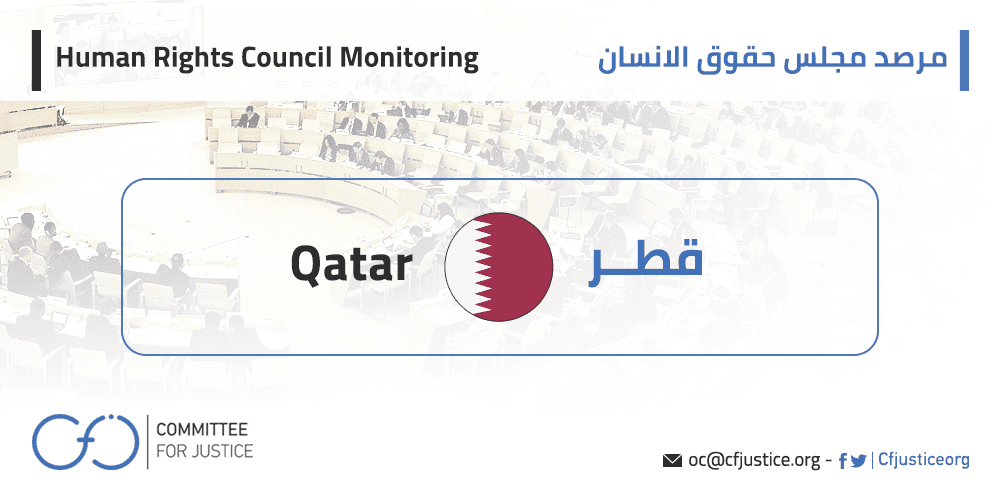News briefing
Translated and edited by: Committee for Justice
Geneva: March 3, 2022
UN Human Rights Committee has concluded its review of the initial periodic report of the State of Qatar on the measures taken to implement the provisions of the International Covenant on Civil and Political Rights, with experts commending legislative revision efforts and asking about Qatar’s stance on the death penalty.
A committee expert commended Qatar for establishing a committee to review and revise domestic legislation in light of international standards, and for its efforts to harmonize laws with the Covenant. He asked about Qatar’s plan to restrict the crimes punishable by the death penalty to “serious crimes” in the sense of article 6.2 of the Covenant, and the possibility of ratifying the Second Optional Protocol to the International Covenant on Civil and Political Rights, which aims to abolish the death penalty, in addition to inquiring about the number of death sentences carried out between 2005 and 2019.
Secretary-General of the Qatari Ministry of Foreign Affairs Ahmed Hassan Al Hammadi said in his opening speech that in the period since Qatar acceded to the Covenant in 2018, it has witnessed wide-ranging developments at the legislative, institutional, political and strategic levels aimed at strengthening the protection of human rights in the country.
Al Hammadi added that Qatar has reformed legislation and institutions that protect migrant workers, abolished the sponsorship system, improved working and living conditions for all workers, and created a safe and balanced working environment in accordance with international labor standards.
In the discussion that followed, the Qatari delegation explained that the State had tried to reform the nationality law to conform to international standards. Qatari women married to foreigners and their children received the same rights and privileges as Qatari citizens.
State legislation has also been periodically amended to ensure that old laws are reformed, that the death penalty is applied only to a small number of very serious crimes, and m any guarantees of the Covenant needed to be respected when it came to handing down such a sentence, and it could only be handed down when judges were unanimous. Pregnant women could not be given the death penalty, nor could mothers with children under two years of age. The Emir also had the ability to repeal death sentences. The emir also has the power to abolish death sentences, and Qatar has never used the punishment of flogging or stoning, and abolished a law permitting stoning.
Photini Pazartzis, head of the Committee, acknowledged the significance of Qatar’s initial report, and thanked the State party for its honest responses to the many questions posed by Committee Experts. She expressed hope that Qatar would continue to work with the Committee. She also called on the State party to consider a de-facto moratorium on the death penalty, and to sign the Optional Protocol of the Covenant.
The delegation of the State of Qatar included representatives of the Ministry of Foreign Affairs, the Human Rights Department, the Ministry of Interior, the Ministry of Labour, the Ministry of Education and Higher Education, the Ministry of Health, the Supreme Judiciary Council, the Ministry of Social Affairs, and the Permanent Mission of Qatar to the United Nations Office at Geneva.






